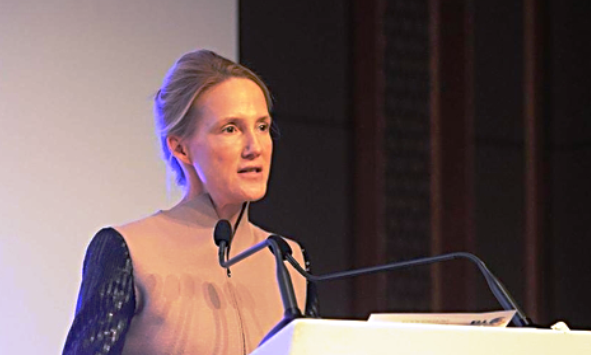Facebook to fight `spread of sex victim humiliation` with photo-matching technology
The social media industry is using `new tricks of the trade` to hit back at the growing trend of offences perpetrated through the world wide web.
The social media industry is using `new tricks of the trade` to hit back at the growing trend of offences perpetrated through the world wide web.
Facebook is to join the fight to prevent the spread of revenge pornography using photo-matching technology.
The social network has announced it will launch new tools to use on its platforms.
The news comes as Director of Public Prosecutions (DPP) Alison Saunders warned that the use of technology to humiliate and threaten sex victims is rising.
A report published last September revealed the number of prosecutions brought for sexual offences had risen to its highest level ever, jumping 22.5 per cent on the previous year.
In total 11,995 defendants were prosecuted in 2015/16 for sexual offences other than rape, up from 9,789 the year before. The figure has steadily increased since 2012.
Facebooks head of global safety, Antigone Davis, said the company will use the new technology to increase security for users across its different apps.
“This is part of our ongoing effort to help build a safe community on and off Facebook,” she said.
As part of the tools, Facebook said “specially trained representatives” from its community operations team review images that are reported to them and remove them, as well as suspending the account that shared the image in most cases.
“We then use photo-matching technologies to help thwart further attempts to share the image on Facebook, Messenger and Instagram,” Ms Davis said.
“If someone tries to share the image after its been reported and removed, we will alert them that it violates our policies and that we have stopped their attempt to share it.”
In April 2015 it was made an offence in England and Wales to share private sexual images or video without the subjects consent, and according to the most recent Violence Against Women and Girls report, 206 people were prosecuted for such offences in the laws first year.
Prior to the change, revenge pornography cases had to be dealt with through existing copyright or harassment laws.
Figures published by the CPS also revealed that prosecutions for alleged “obscenity” offences including cases brought under the Malicious Communications Act and for possession of extreme porn images jumped by 20 per cent to just under 7,000.
DPP Ms Saunders said: “There is a growing trend of crimes committed on or through social media.
“Since the new legislation came into force, there have been over 200 prosecutions for disclosing private sexual images without consent.
“We have also found that defendants in controlling or coercive cases rely on tactics such as GPS tracking and monitoring phone or email messages.
“The use of the internet, social media and other forms of technology to humiliate, control and threaten other individuals is rising.
Facebook also says it works with safety organisations to offer “resources and support” to any victims of revenge porn.
Laura Higgins, founder of the Revenge Porn Helpline UK, said: “We are delighted with the announcement made by Facebook.
“This new process will provide reassurance for many victims of image based sexual abuse, and dramatically reduce the amount of harmful content on the platform.
“We hope that this will inspire other social media companies to take similar action and that together we can make the online environment hostile to abuse.”
Social media is currently under fire in a number of quarters, accused of failing to address the issue of extremist content on video platforms. Last week, the Home Secretary hosted a round-table summit with communication service providers to discuss how government and industry could work to tackle online terror.
Facebook, along with Google, Twitter and Microsoft, announced plans for a cross-industry forum to tackle the danger of terrorist material on the web, following the meeting with Amber Rudd.


